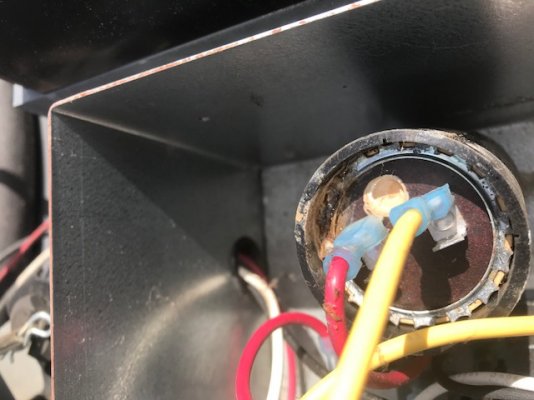Itascajoe
Active member
- Joined
- Nov 15, 2017
- Posts
- 26
Hello all. I have 3 rooftop a/c's that were all running this past week. The campground was experiencing power problems so the 50 amp breakers keep tripping. I reset it a couple times but stupid me I didn't shut off the a/c's. 2 are cooling but one the compressor doesn't seem to be running and is only blowing warm air. I'm thinking the capacitor may be burnt. Would you all agree? As soon as I can I'll get up there and check it.
My AC is a Coleman March 8.
My AC is a Coleman March 8.

